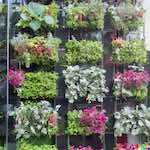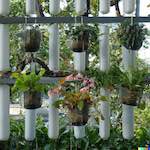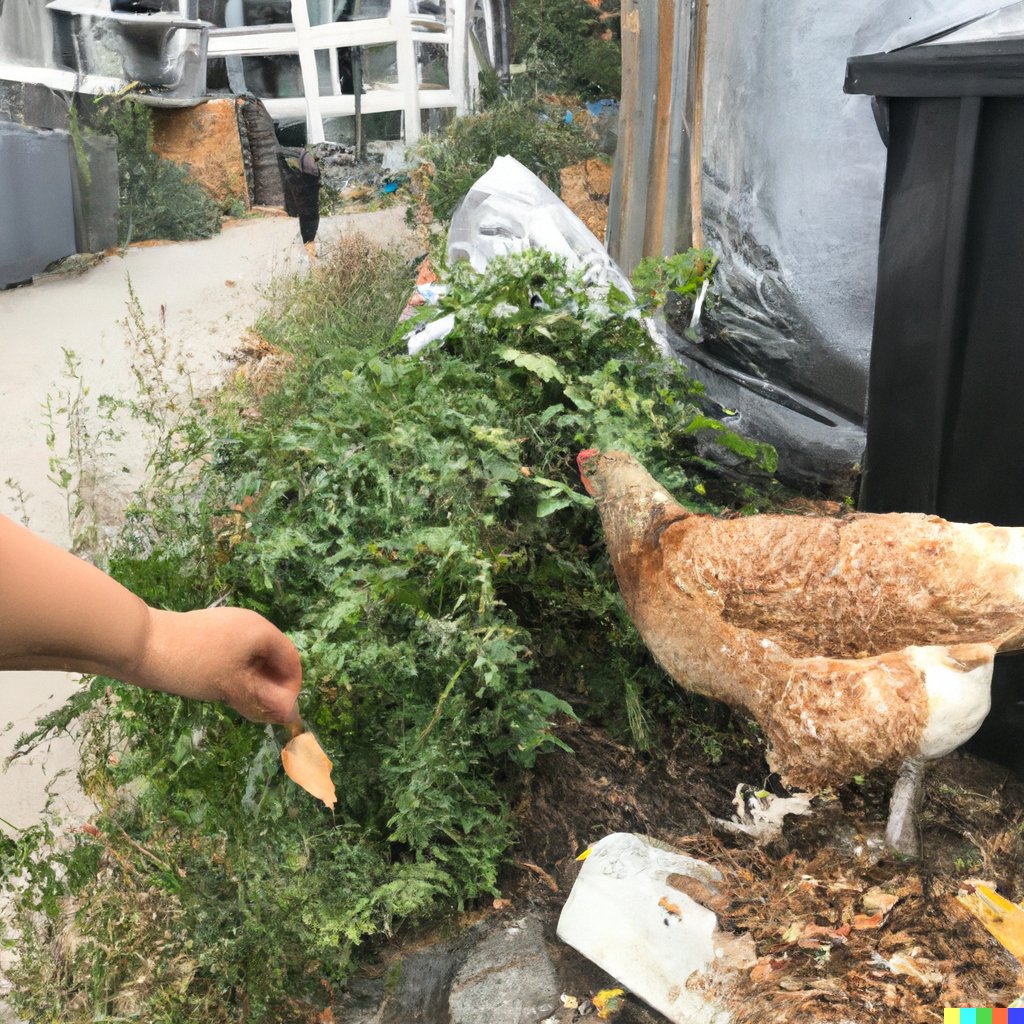
Are you curious about the cost of sustainable living? Let's set the record straight and explore whether living sustainably is genuinely more expensive. With rising cost of living and concerns about the environment and climate change, it's crucial to understand the financial implications of adopting a sustainable lifestyle. This article breaks down the myth and offers practical insights for you.
Initial Costs - Sustainable Products
A crucial part of eco-living is investing in green products. These give long-term benefits. Opt for sustainable options like reverse osmosis water filters, rain collection systems, or a worm composter to reduce your environmental impact.
Initial costs may be higher than conventional ones. But, you'll save money in the long run - sometimes, even over generations.
Investing in Sustainable Products:
Sustainable living helps preserve resources and also teaches us responsibility towards future generations. Analyze the costs and benefits before making decisions that reflect your values.
Rachael was initially put off by the cost of eco-friendly products. But, after installing rainwater harvesting and a reverse osmosis filter, she saw a significant reduction in her water and grocery bills. The initial investment soon paid off, and she inspired others to go green.
Energy Efficiency - Cost-Saving Potential
| Factor | True Cost-Saving Potential |
| Upgrading appliances | 9-16% reduction in energy usage and related costs |
| Installing insulation | Annual savings of up to $600 on heating/cooling |
| Switching to LED lights | 75% more efficient, reducing electricity bills |
| Energy-efficient windows | Cut energy losses by up to 30%, saving on HVAC |
| Worm Composting organic material | Earn organic fertilizer and reduce waste volume. |
| Growing Food | Make money with every organic food you grow at home. Fish or chicken might also be an option for city apartments. |
| Reverse Osmosis Water Filter | Bottled water is expensive and contaminated. Water filters offer cheap, sustainable alternatives. |
| Black Soldier Fly Larvae | Produce healthy essential proteins and fats for livestock, pets, and even humans out of waste. |
| Rain Harvesting | Save water costs and produce the best water for plants. |
| DIY Laundry Detergent | Good for water, health, environment and the pocket. |
Energy efficiency is great for the environment and your wallet too! Using local resources avoids transport costs and cuts down on carbon emissions. Plus, growing food makes use of organic waste which would otherwise end up in landfills.
Want to save money? Start with energy-efficient practices! Not only will you be helping the planet, but you'll also benefit from some economic gains. Don't miss this chance to make a positive change! And if you're looking to save on your water bill, just tell your plants they need to start chipping in!
Water Conservation - Saving on Consumption
Water is essential. Conserving it helps the environment and saves money. Here are five ways to save on water consumption:
Maximizing Efficiency!
- Invest in rainwater collection systems. Utilize rainwater for growing plants, reducing reliance on municipal supply.
- Upgrade to efficient fixtures. Installing low-flow toilets, aerated faucets, and showerheads will decrease water usage while maintaining performance.
- Maintain a well-maintained landscape. Proper irrigation techniques like drip irrigation or smart sprinkler systems ensure efficient water distribution and reduce waste.
- Address leaks promptly. Plumbing leaks can waste gallons of water daily. Fix these issues to save water and lower utility bills.
- Utilize reverse osmosis filters. Don't buy bottled water. Install reverse osmosis filters in your home for clean drinking water and to reduce plastic waste.
By taking these steps, households can minimize their water consumption and benefit financially. Small steps towards conservation are crucial for sustainability.

Water Conservation - Making a Difference!
Changing our habits and adopting sustainable practices can have a big impact. Conserving water not only saves money but also helps address broader environmental problems such as droughts and freshwater shortages.
True History:
People sought out an environmentally friendly alternative to bottled water. Reverse osmosis filters became popular. This raised awareness of the need to maximize efficiency. People started using rainwater collection systems and upgraded fixtures. As people saw how their actions could save money and benefit the environment, sustainable living gained more followers.
Drive a sustainable car and laugh maniacally while passing gas stations - you'll make up for the cost in no time!
Sustainable Transportation - Long-Term Benefits
|
Financial Savings |
Choosing public transit, cycling, or walking could save on fuel and maintenance costs. |
|
Environmental Benefits |
Reduced carbon emissions, air pollution, and noise levels lead to a cleaner and healthier environment. |
|
Improved Health |
Biking or walking promotes physical activity and a healthier lifestyle. |
|
Economic Development |
Investing in sustainable transportation infrastructure creates jobs and stimulates local economies. |
Furthermore, these benefits go beyond the scope of paragraph 2. Sustainable transport reduces congestion, increases road safety, and encourages social connection. It also conserves natural resources by reducing reliance on fossil fuels.
To further support sustainability:
- Offer incentives for electric vehicles, like tax breaks or subsidies.
- Develop reliable public transit with affordable fares and routes.
- Implement bike lanes and secure parking.
- Encourage carpooling programs.
Urban planning strategies that embrace sustainable transportation can benefit communities worldwide. They help minimize environmental harm and foster economic growth, while also providing a better quality of life.
Home Gardening - Growing Your Own Food
Growing produce at home has plenty of advantages! Here are five key points:
- Self-sufficiency: You can provide fresh & nutritious food for yourself and family.
- Cost savings: No need to buy fruits & veggies from stores.
- Sustainability: Uses local resources and supports the local ecosystem.
- Taste & quality: Home-grown produce often has better taste & quality.
- Physical activity: Gardening provides physical exercise outside.
Plus, you have control over pesticide usage, can practice organic practices, & feel great about successful harvests!
This timeless tradition allows us to connect with food sources & embrace sustainable living.
Waste Reduction - Reducing Costs
- Cutting down on waste makes the environment happier and our wallets thicker! Implementing waste reduction strategies can lead to big savings.
- Growing our own food is much cheaper and healthier than buying from the store. Plus, it's pesticide-free and produces no plastic waste!
- Steer clear of single-use plastic packaging and opt for bulk items or reusable containers instead. This will save a lot of money in the long run.
- Don't let food go bad and end up as waste! Repurpose leftovers and feed them to chickens, fish, or black soldier fly larvae. This is a great way to get protein-rich feed or fertilizer.
Waste reduction is a win-win for both the environment and your financials. So go green and save green! Looking for a mortgage that won't leave you green with envy? Sustainable housing: where going green means saving green.
Sustainable Housing - Long-Term Savings
Sustainable housing has immense economic advantages over conventional options. Three major cost-saving points are:
- Energy efficiency: Sustainable houses use technologies and design features to reduce energy usage, meaning lower bills.
- Maintenance costs: Durable materials used in sustainable homes require less repair or replacement, resulting in long-term savings.
- Water conservation: Rainwater harvesting and greywater recycling systems decrease water usage, lowering monthly expenses.
Living sustainably also brings added benefits like cleaner air due to plants filtering it and better mental health. Osmosis filters can also boost IQ and physical strength for adults and kids. Reject water for toilet flushing and dishwashing helps conserve resources effectively.
Studies show that people who switch to sustainable homes save significantly on utility and maintenance costs, showing its practicality and cost-saving potential. Furthermore, supporting local businesses is good for the economy and your conscience - it's a great way to 'go green' while you grab your favorite coffee!
Local Economy - Support for Businesses
Supporting local businesses is key for the local economy's growth and sustainability. By shopping at local stores, people help the community overall. It:
|
- keeps money in the area, assisting small business owners and giving job opportunities. |
|
- encourages entrepreneurship with a platform for individuals to start and develop ventures. |
|
- strengthens community engagement with events and initiatives that unite people. |
|
- adds character with unique products and services that reflect the regional culture. |
|
- reduces transportation emissions from long-distance shipping. |
Not everyone can grow enough food, but local meat and veg offer a sustainable option. Wild-caught fish or game, or even eating invasive species, are also sustainable. Supporting local businesses not only boosts the economy but also brings communities together, preserves cultural identity, and contributes to environmental sustainability.
To keep supporting local:
|
1. Shop at farmers' markets for direct, fresh produce from local farmers. |
|
2. Buy from local artisans to promote craftsmanship and support small-scale manufacturers. |
|
3. Eat at independent restaurants to experience unique flavors and support local culinary talent. |
|
4. Spread the word on social media or by word-of-mouth about positive experiences. |
We can all help build a sustainable, resilient, and thriving local economy by supporting local businesses. Reusing empty coffee cups and grounds as flower pots is an easy, eco-friendly way to say, 'I don't need caffeine to survive; plants do!'

Eco-Friendly Habits - Everyday Savings
Reduce energy consumption with energy-efficient appliances and save habits. Turn off lights when not in use, and you'll see lower bills. Cut water usage by fixing leaks and using low-flow devices. This can result in reduced water bills and help conserve resources.
Sustainable transport like walking, cycling, or carpooling can save money on fuel costs, parking fees, and maintenance expenses. Waste reduction with composting, recycling, and minimal packaging can reduce waste disposal costs and environmental impact.
Growing your own food with aquaponics or osmosis filters may require an initial investment, but the long-term harvests will reduce grocery bills. Simple lifestyle changes, like reducing meat consumption, shopping secondhand, or using cloth napkins, can lead to significant savings over time.
These everyday sustainable habits promote a greener lifestyle and offer economic benefits. Take small steps - focus on one change at a time for better sustainability outcomes. Going green gives financial incentives and will make your bank account sustainably flush!
Green Investments - Financial Incentives
Take a look at the financial incentives for green investments in the table below:
|
Financial Incentive |
Description |
|
Tax Credits |
Tax breaks for renewable energy. |
|
Grants |
Funding from gov't or private organizations for eco-friendly projects. |
|
Feed-in Tariffs |
Earn money by selling excess renewable energy to the grid. |
|
Subsidies |
Financial assistance for using sustainable technologies. |
These incentives let you help the environment and get financial benefits. Don't trust big companies' eco-friendly slogans. Grow your own food for transparency and healthy eating.
For example, Sarah turned her backyard into an organic farm. She saved money on groceries and enjoyed fresh produce all year. Her sustainable lifestyle saved her money and reduced carbon emissions.
Living sustainably doesn't have to be expensive. With the right incentives and initiative, it can save costs and create a better future. Plus, turning off the lights when you leave a room saves energy and helps you practice being a ninja!
Resource Management - Cost Efficiency
Incorporating a circular ecosystem into your life can save you money and time. For instance, you don't need to buy water from the supermarket and transport it home. Moreover, there's less waste to dispose of, resulting in a lower cost.
Sustainable energy sources, such as solar panels and wind turbines, can reduce energy bills. Water conservation techniques (e.g. rainwater harvesting, efficient irrigation systems) can lower water costs. Additionally, waste reduction practices (e.g. recycling and composting) can decrease waste disposal expenses.
The benefits of a circular economy are twofold; it helps to protect the environment and saves money. By properly managing resources, individuals can save money and reduce their environmental footprint.
John's story is a prime example. He installed solar panels and implemented a composting system. His energy bills decreased by 40%, and he was able to save money on buying fertilizer for his garden. Plus, there was a considerable reduction in the amount of waste generated, which meant less frequent trash collection fees.
Living with less doesn't mean spending less; it just means spending on things that won't clutter your house, like self-control and happiness.
Minimalist Lifestyle - Economic Advantages
Living a minimalist lifestyle brings many economic advantages. Firstly, it helps cut back on expenses by focusing on the essentials. Resulting in financial savings and a more thoughtful approach to spending.
It also offers potential for increased income. By clearing out and downsizing, individuals can sell or donate unwanted items, making extra money. This money can be used to invest in experiences or save for future goals.
A Sustainable and Affluent Way of Living - Economic Benefits
Furthermore, growing your own food can also lead to economic benefits. Cultivating your own fruits and vegetables, prevents the need to buy produce with chemicals or genetically modified. This saves money and promotes healthier eating habits.
Apart from these economic benefits, minimalism allows individuals to take control over their lives. By cutting down on possessions and focusing on the important things, people can prioritize well-being and happiness over material possessions.
To make the most of the economic advantages of minimalism, it is essential to do research and think of personal priorities. A few ideas are starting small by decluttering one area at a time, creating a budget that fits with minimalist values, and exploring ways to grow your own food like container gardening or joining a community garden.
By taking charge of our finances and embracing simplicity, we can benefit economically while improving our overall well-being.
Start your journey of becoming sustainable the lazy way:
FAQ
Q: Is it more expensive to buy organic food?
A: Organic food may have a slightly higher upfront cost than conventionally grown food. However, the benefits of avoiding harmful pesticides and supporting sustainable agriculture make it a worthwhile investment.
Q: Are solar panels cost-effective?
A: Solar panels require an initial investment, but they can lead to significant savings on electricity bills over the years. In some cases, solar panel owners can even sell excess energy back to the grid, further reducing costs.
Q: How can I live sustainably on a budget?
A: Sustainable living can be achieved on a budget by making small changes, such as reducing energy and water consumption, composting, and buying second-hand items.
Q: Are eco-friendly products of lower quality?
A: Eco-friendly products are often made with a focus on durability and quality. While some sustainable items may have a higher price, their longer lifespan makes them cost-effective in the long run.
Q: Can sustainable living benefit the economy?
A: Yes, sustainable living can positively impact the economy by supporting green industries, creating job opportunities in renewable energy sectors, and fostering a more resilient and sustainable society.
Q: What are some cost-saving eco-friendly practices?
A: Some cost-saving eco-friendly practices include reducing energy and water consumption, opting for public transportation or biking, and choosing locally-sourced products to support the community.
Conclusion
The misconception that sustainable living is more expensive has been debunked. While some eco-friendly products may come with a higher upfront cost, the long-term financial benefits of sustainable living practices far outweigh the initial investment. From energy-efficient appliances that reduce utility bills to home gardens that save on grocery expenses, living sustainably can lead to significant cost savings.
Moreover, sustainable choices not only benefit your wallet but also contribute to a healthier environment and a more resilient society. Supporting local businesses and adopting waste reduction practices are just a few ways sustainable living can positively impact the economy and community.
By making conscious choices and embracing eco-friendly habits, we can live sustainably without breaking the bank. It's time to recognize that sustainability is not a luxury but a practical and cost-effective way to protect the planet and secure a brighter future for generations to come.














